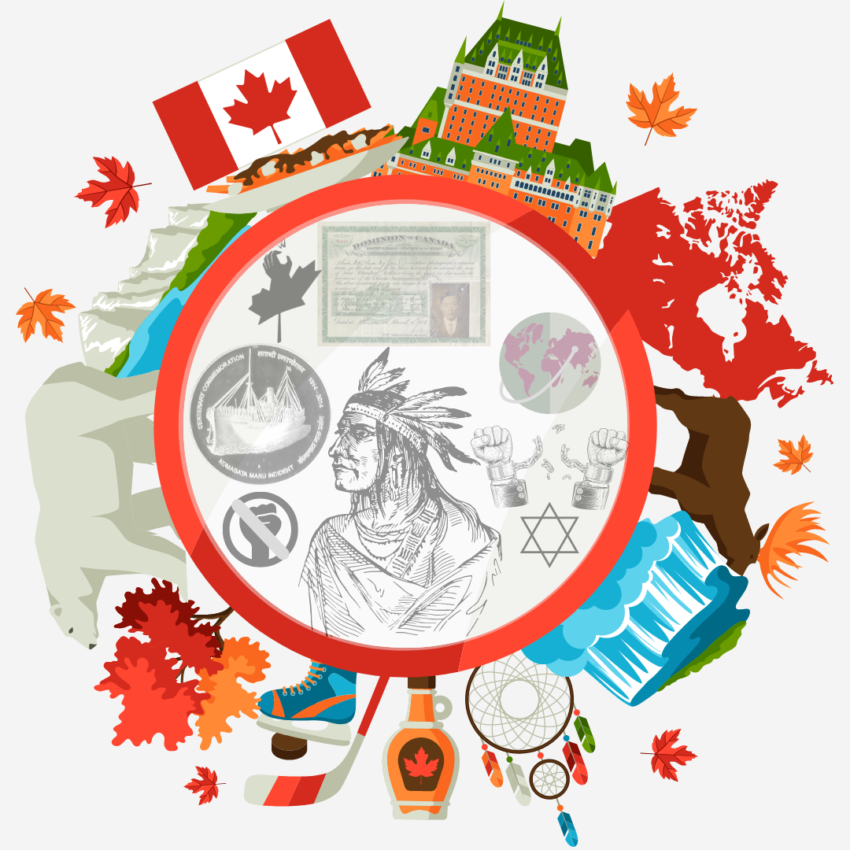
Systemic racism is a deeply embedded sickness in Canadian culture that is highly normalized. It has come to a point where many question whether Canada even deserves its self-proclaimed status as a “multicultural oasis.”
News flash: the answer is no.
When one thinks about racism, the United States of America and its unjust treatment of racial minorities might come first to mind. While this is a reality, countries besides the US deserve to be held equally accountable.
Then shall we talk about Canada, eh?
After living in Canada for a while, I have begun to understand the subtle shades of racism that exist here. To my understanding, while countries like the US are blatantly expressive of their racist ideologies, Canada paints a liberal picture and hides behind its comfortable cloak of multiculturalism.
Being a person of colour, I have had first-hand experiences with racism, prejudice and discrimination. Some attacks are directed at the colour of my skin or accent while others ridicule and mock my cultural beliefs and values.
Only by seeing through Canada’s cloak of multiculturalism can one realize that systemic racism is as old as our beloved nation. While it was once a social norm, Canadians now perpetuate systemic racism passive-aggressively and defend it by deflecting criticism to the US, resulting in the systemic racism evolving over time.
This has become a Canadian tradition since it projects an image that things in Canada are not as bad.
It also conveniently maintains white supremacy.
To exemplify this, in Canda we portray our legacy of slavery very differently than the United States. But different doesn’t necessarily mean better.
What many Canadians find hard to acknowledge is that more than 4,000 Indigenous and Black people were enslaved in Canada. It is no surprise this fact has been hidden by mainstream Canadian history. Many books, articles and journals only advocate that Canada welcomed freed slaves rather than being a nation that benefited from slavery.
Desmond Cole aptly describes Canada’s facade of racism when he says, “This idea that Canada’s racial injustices are not as bad as they could be… is a very Canadian way of saying: remember what we could do to you if we wanted to. Passive-aggressive racism is central to Canada’s national mythology and identity.”
Apart from slavery, systemic racism in Canada resulted in the establishment of residential schools, the Chinese head tax, the internment of Japanese-Canadians and the Komagata Maru incident. But in our social studies curriculums, this history is briefly touched upon.
Although the Canadian government has accepted that these incidents occurred and the existence of some microaggressions, does that mean all Canadians acknowledge the racial injustices many minorities face?
Moreover, does claiming to be multicultural mean that Canada deserves a free pass in any situation even remotely related to race?
The answer is no.
This artful habit of using the US as a criticism shield has created a unique Canadian fallacy that gives many Canadian politicians and decision-makers the privilege to conveniently downplay Canada’s own systemic racism.
Rather than acknowledgement and proactive measures, we instead blur the lines between acceptable and unacceptable social ideologies through selective ignorance.
Systemic racism in Canada is as real as you and I. It is high time we address it. Otherwise, Canada will remain convinced of its utopian narrative where racism is magically cured with a simple smile and a “sorry.”
This op-ed was written by a University of Saskatchewan undergraduate student and reflects the views and opinions of the writer. If you would like to write a reply, please email opinions@thesheaf.com. Ishita Mann is a first-year undergraduate student studying cellular, physiological and pharmacological sciences. She is the founder and chief executive officer of Youth Helping Youth Saskatchewan — a non-profit designed to help students find meaningful opportunities and scholarships in Saskatchewan.
—
Ishita Mann
Graphic: Ishita Mann
Leave a Reply